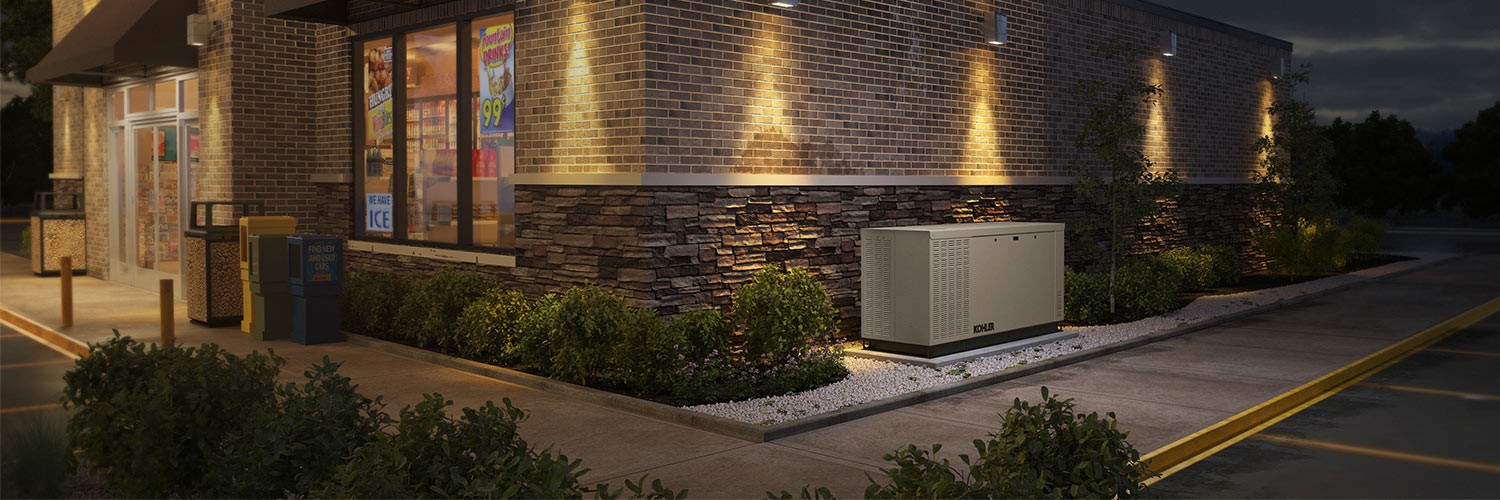Preface: As of this writing, obtaining a new generator is very challenging. Generator inventories were low prior to Hurricane Ian, but available units have been routed to disaster zones. Those who currently own a commercial generator should ensure that it is properly maintained so as to be prepared if and when the unit is ever needed.

Hurricane season is finally coming to a close here in Florida. Sarasota mostly escaped the severe damages experienced in other parts of the state, but that doesn’t mean we should let our guard down. If you have a generator installed or stored at a commercial property, now is the time to check and ensure it is in working order for any situations that arise in the future. Tenants and companies that work out of your properties need to be confident that their needs can be met at all times, and preventative generator maintenance is integral to providing this peace of mind.
Commercial Generator Maintenance Overview
Generators, especially at commercial properties, are an essential lifeline in times of need. You can expect your generator to function for decades with minimal but routine maintenance. Maintaining a commercial generator and replacing parts can be complex because different models vary widely. If you are unsure about the process, contacting a professional electrician with experience in generator maintenance can save you the time, money, and stress that comes with repairing an expensive machine.
Here are the things to look for when inspecting your generator.
Wear and Tear: Generators, especially those installed permanently outside of a property, can sustain damage from the elements and decrease efficiency and safety. Despite being rated for outdoor use, decades of rain and wind will affect nearly all generators to some extent. If your generator is deemed safe and efficient even after extended outdoor exposure, continue this trajectory by purchasing a hard shell cover to protect the outside of the generator when not in use.
Engine Oil Levels: Engine oil, being one of the most critical components affecting the efficiency of your generator, should be checked and topped off regularly. After sustained use, around 800 or more hours, the oil should be entirely replaced, leaving no previous oil within the system. If you notice your generator performing poorly and suspect the engine oil might be to blame, remember to allow a cooling-off period before you refill or interact with the oil within the generator.
Battery: The battery is a common failure point for generators that have been in use for an extended period of time. Luckily, they can be easily replaced or made to function again. Maintain fully charged batteries and ensure the battery connection points are free of corrosion and debris.
Broken Parts: Many parts of a generator can affect the performance and longevity of the machine if not replaced or fixed in a timely manner. The commercial property owner can do more straightforward replacements, such as the air and fuel filters. In contrast, a certified professional should handle exhaust and drive belt replacements.
The best way to ensure your commercial generator is ready for emergencies is to run monthly tests at the property. Running a generator for an hour will hopefully shine a light on any issues that need to be addressed, allowing you to take preventative measures and call an electrician to fix the problem.
Don’t leave all of your preparations to the last minute. Call a certified electrical service firm, such as Promise Electric, to make repairs or maintain your older generator.
Need help figuring out what you need? Don’t get caught in the dark – call Promise Electric for your Sarasota business.


